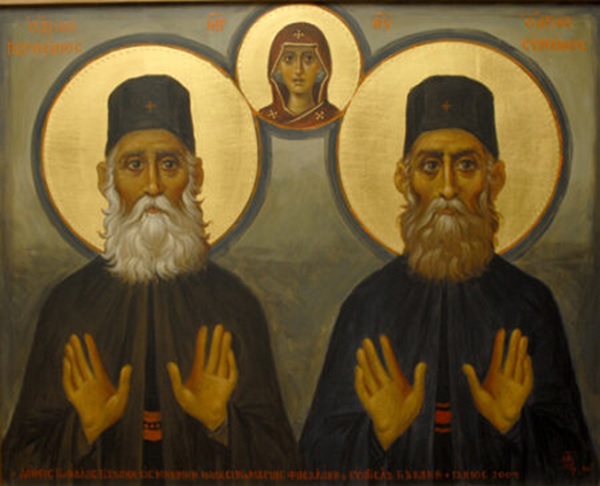The gifts of foresight and discretion
13 July 2023(ed. Stelios Koukos)
Unfortunately in Crete, to this day, the phenomenon of livestock rustling continues to exist, which is offensive to the island’s history and Christian tradition. It’s a bad custom, a distortion of the words ‘ ability’ and ‘cleverness’ and their meaning. It not only provokes acts of vengeance in kind, but sometimes even murder.
Back in those years of poverty, this wickedness was even more widespread. And it didn’t involve only animals, that is sheep and goats, which were the primary target, but other kinds of food sources, as well.

Saint Parthenios was responsible for ensuring the nutritional requirements of his Monastery (the Monastery of Koudoumas, on Crete) and visitors. For this purpose, he had not only a flock of sheep and goats which provided milk and cheese, not only the production of the fields which were cultivated at the dependency of Saint Nicholas and in other places where the monastery had been given land, but also bees. These were housed in clay hives, as was the practice at the time, and one of the brothers who was familiar with apiculture had taken on this obedience.
One evening, the holy elder summoned this beekeeper and said: ‘Son, tomorrow at such and such a time, people are planning to come from such and such a village to steal the honey from our bees. So please take a couple of assistants and go and harvest the hives. If you go early, when they come they’ll see you and go away’.
And it happened just as the elder said it would.
He had known the time for which the theft had been planned, which was why he’d sent the other monks earlier. He didn’t tell them to go at the time of the theft and to catch the men red-handed, because he didn’t want to shame them, which would have had negative consequences. It would have been possible, if they were ashamed, or worried that the monks would spread what had happened, that they might attack them or even kill them. At best they might cut all contact with the monastery, contact that was actually beneficial to them.
Through his gift, the saint not only prevented the sin of theft, which these people were going to commit, but also forestalled unpleasant consequences. The saint had the gift of foresight. But he also had that of discretion, that is of godly wisdom, and so was able to put his gifts to the best of uses. In this particular instance, he acted in a most excellent, preemptive manner.






